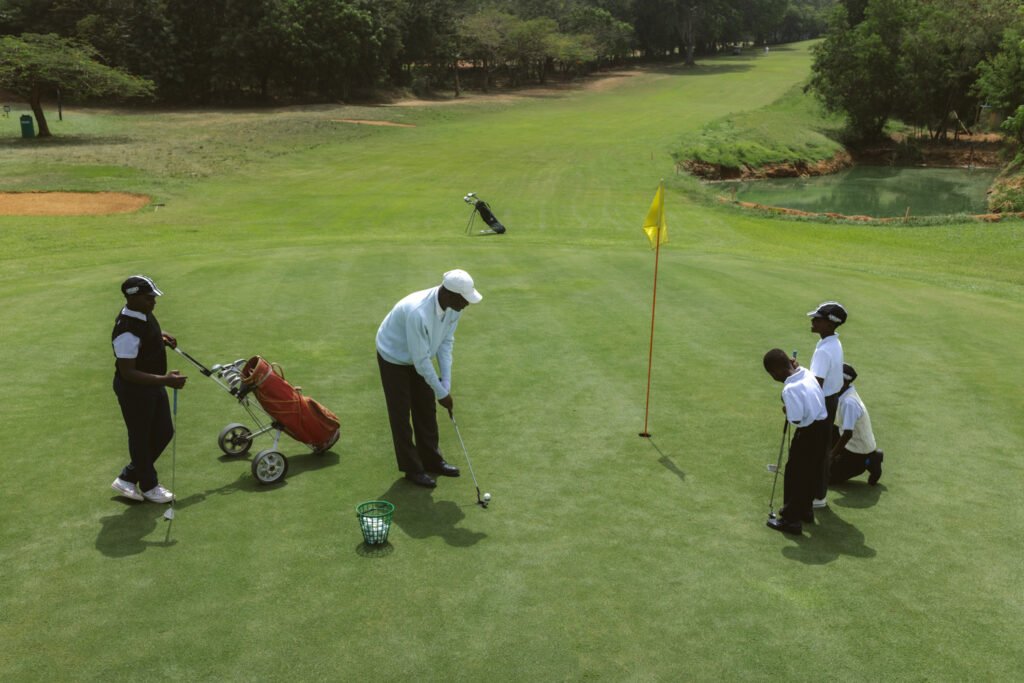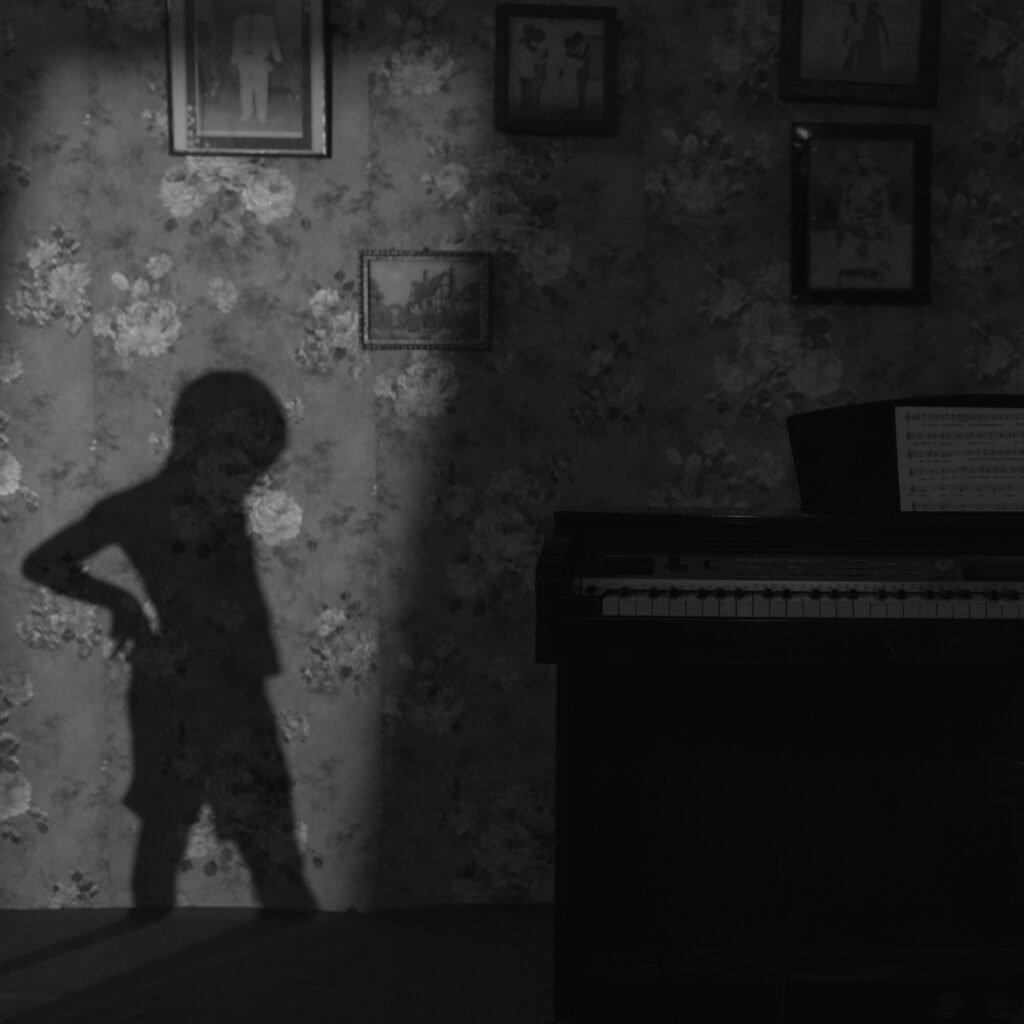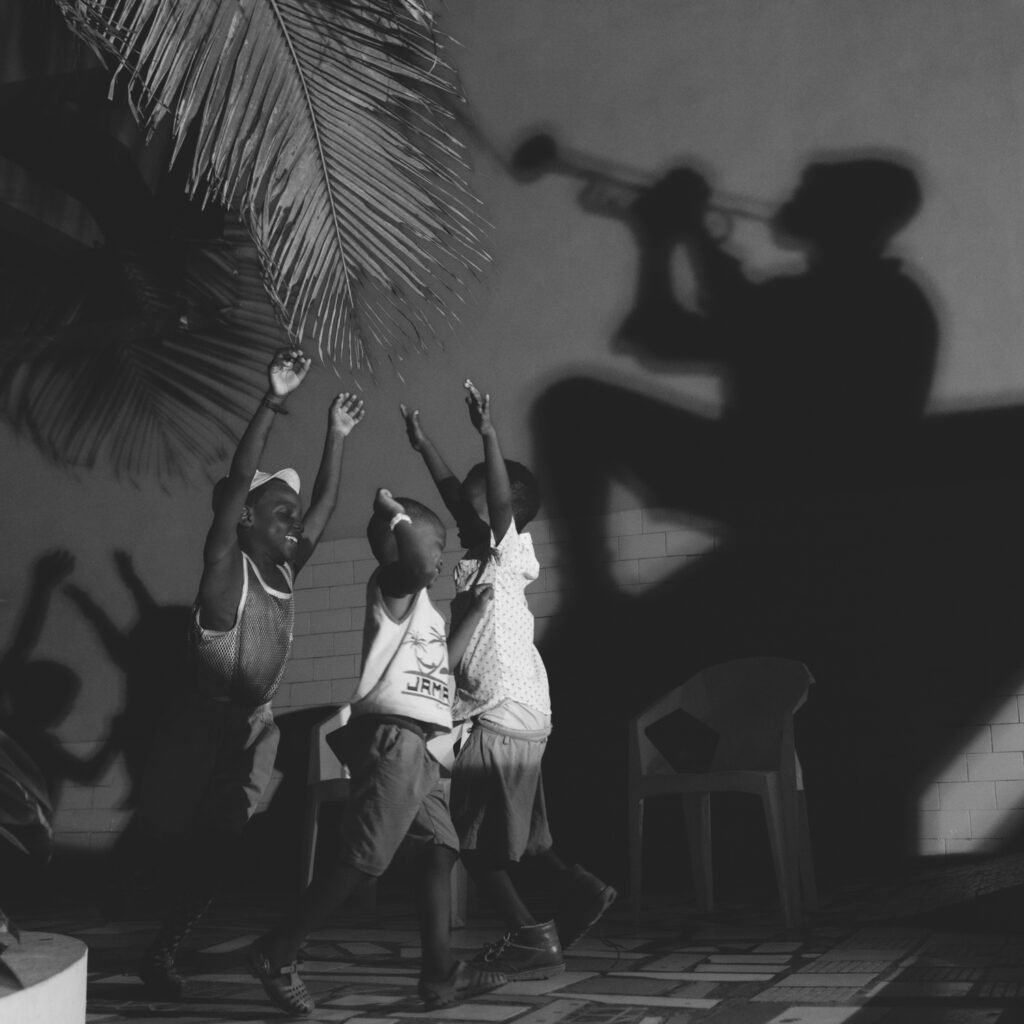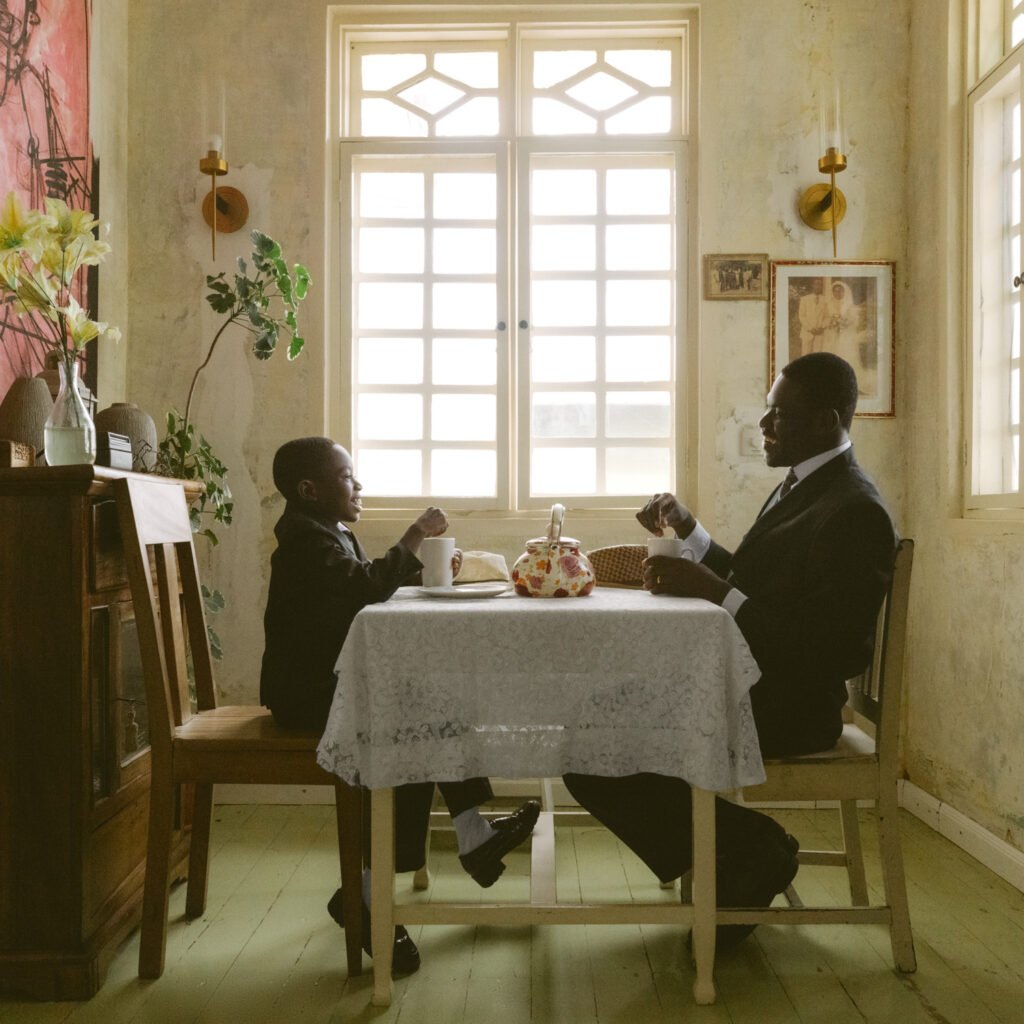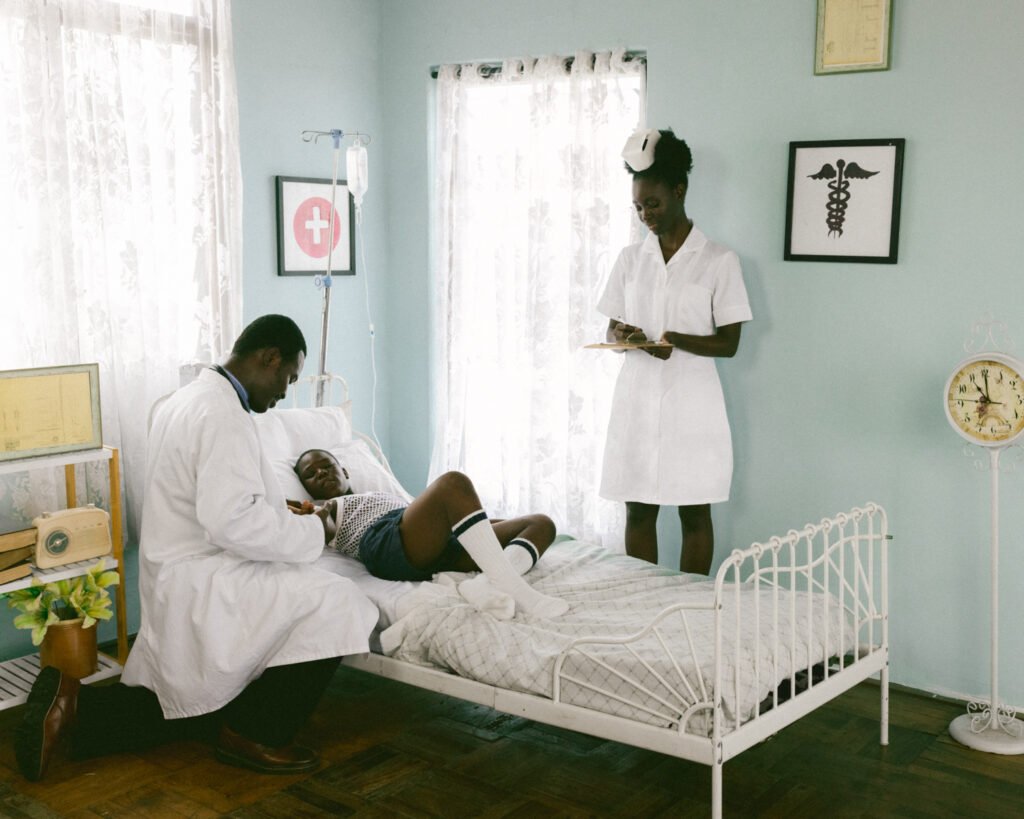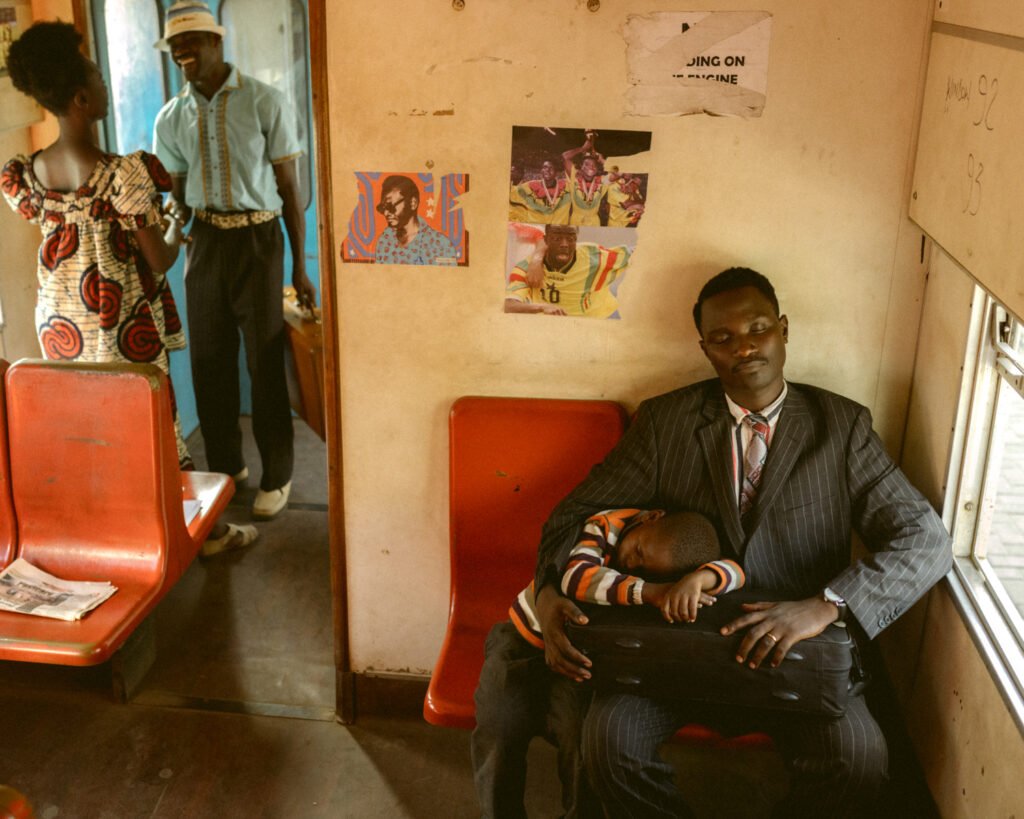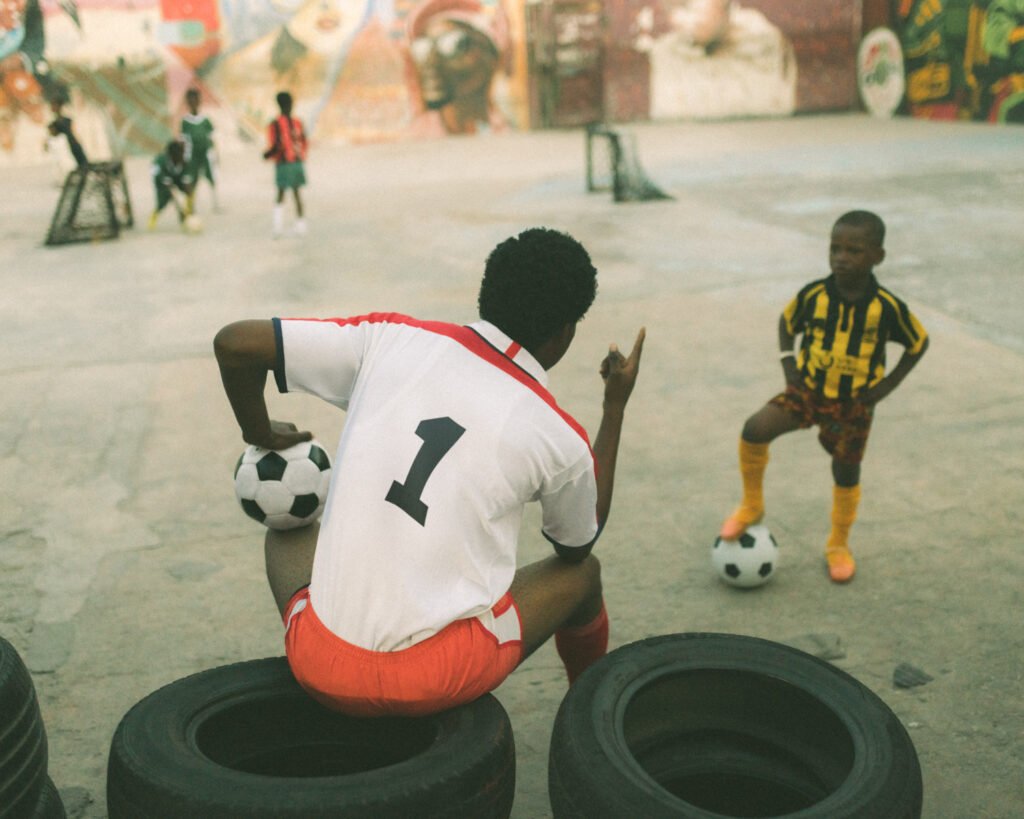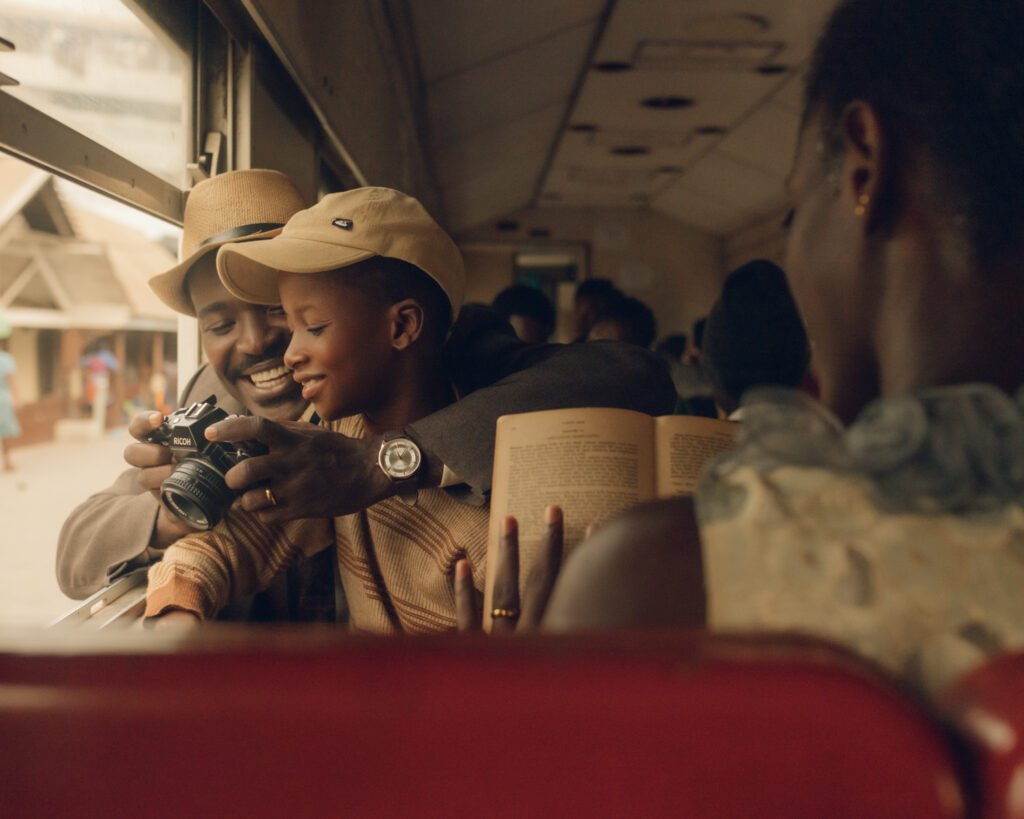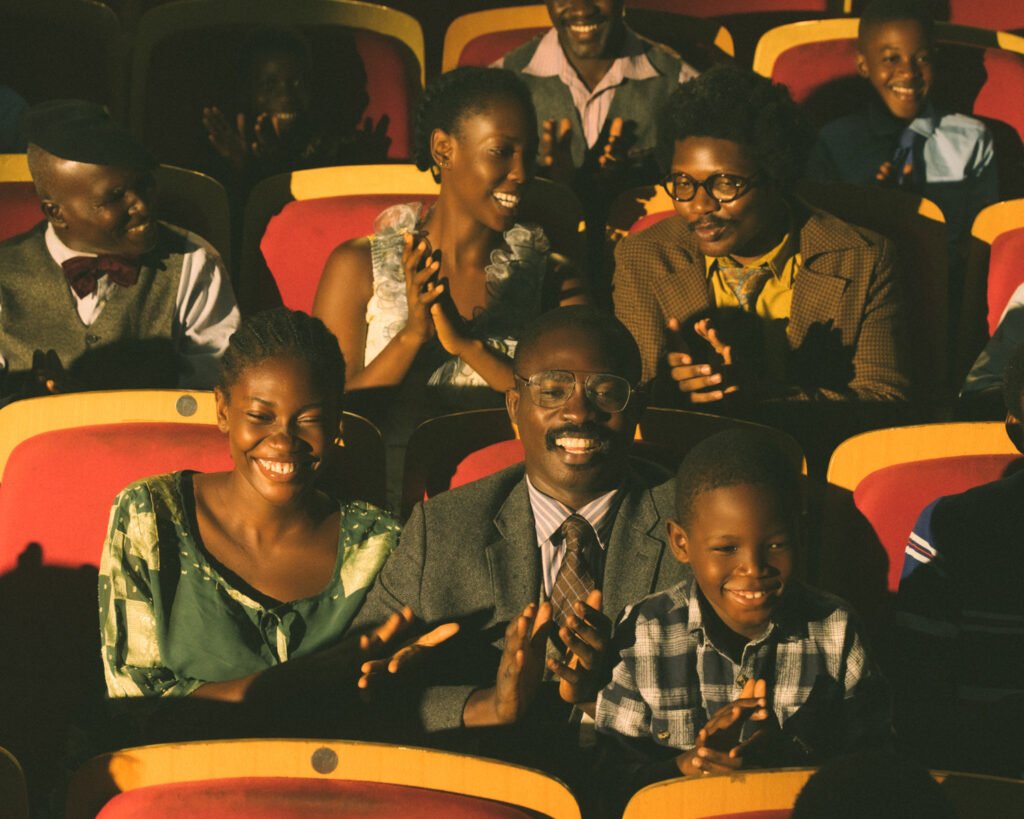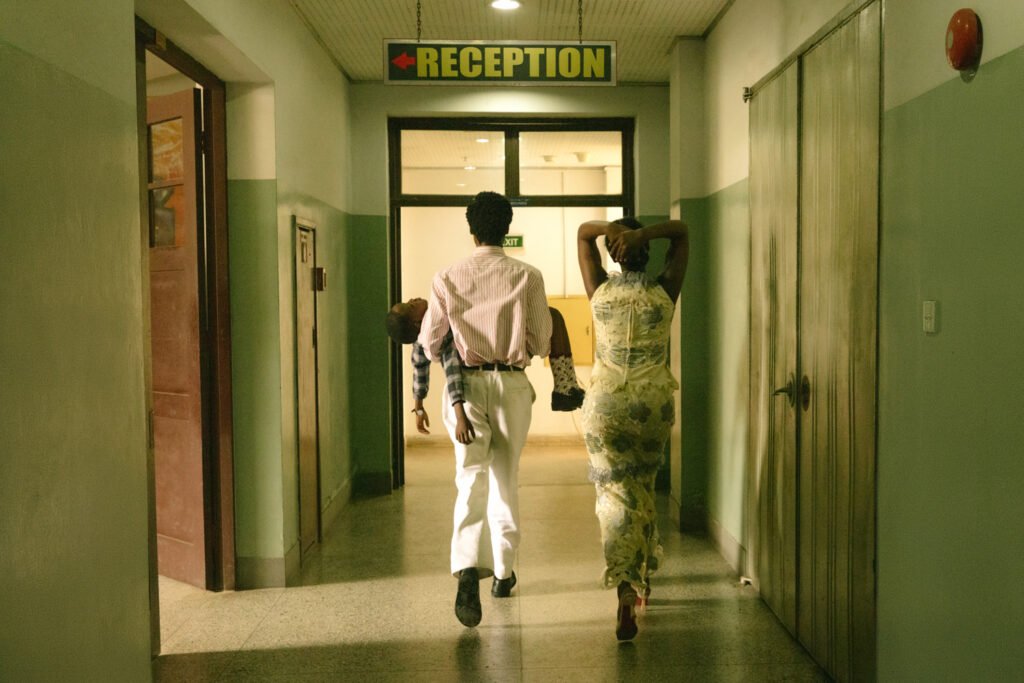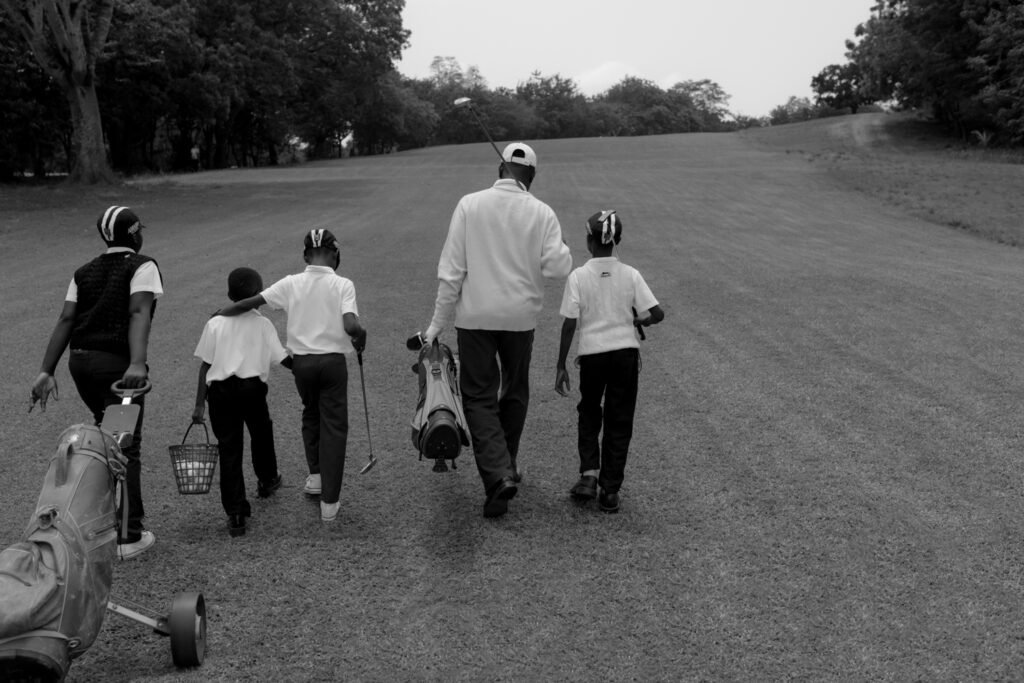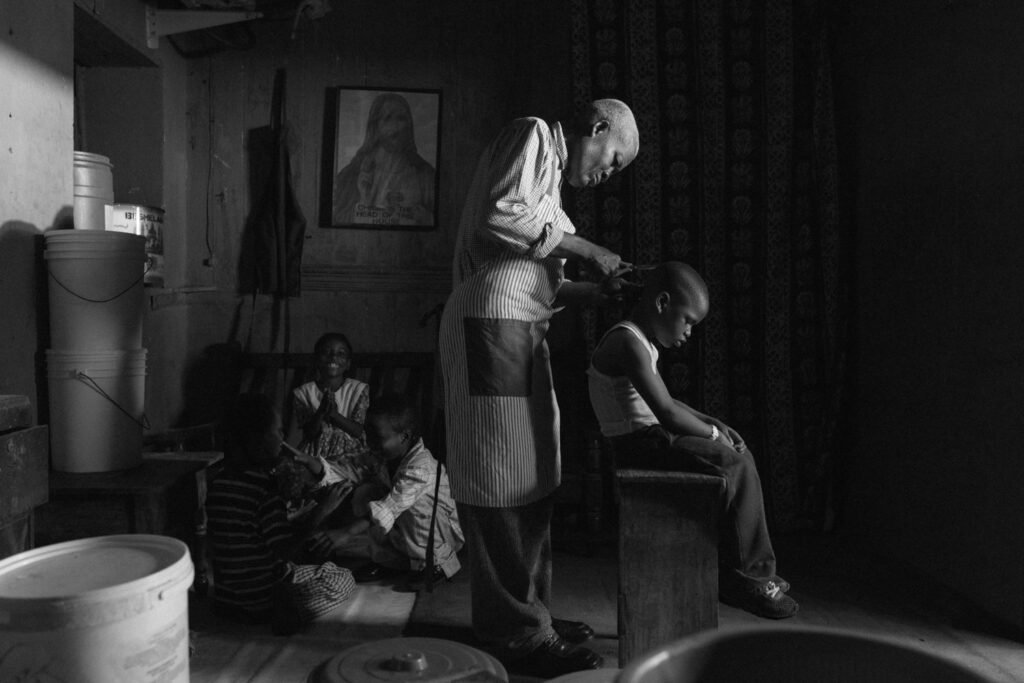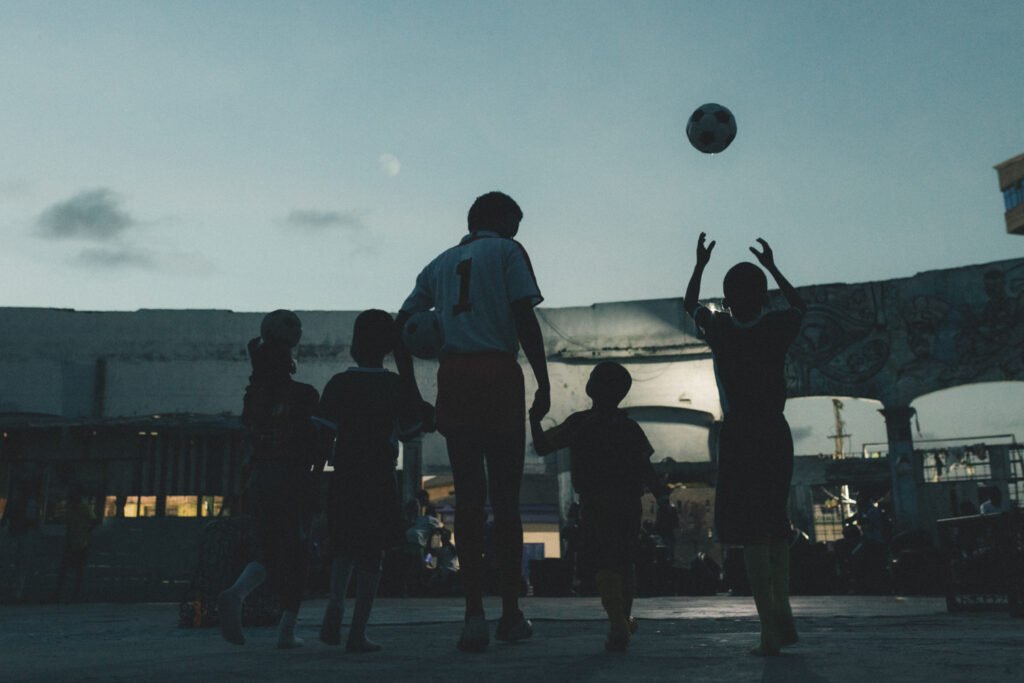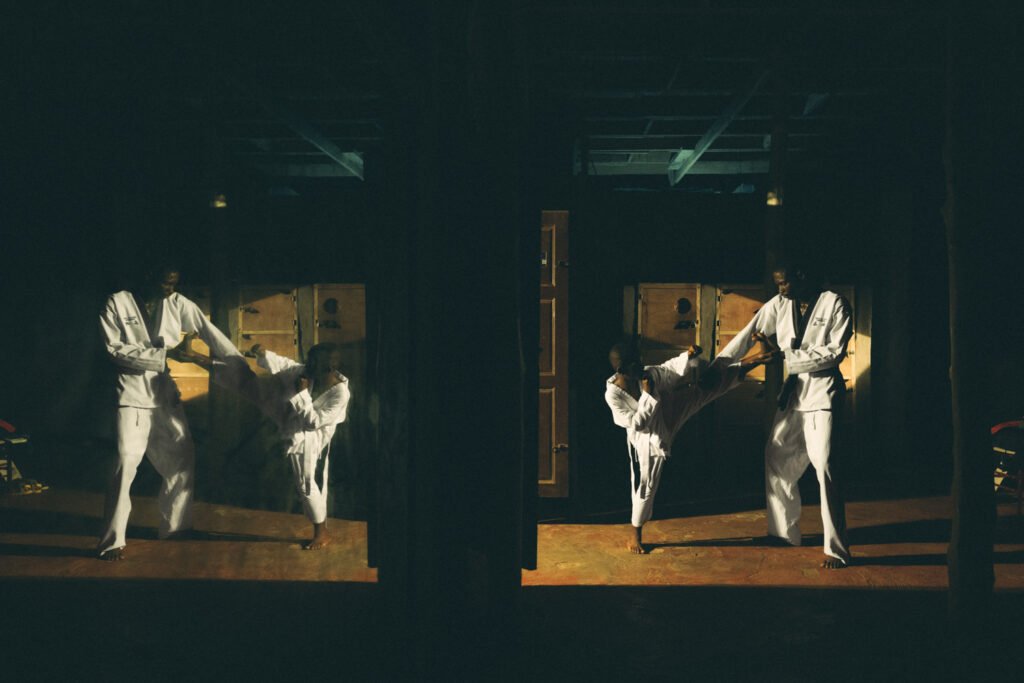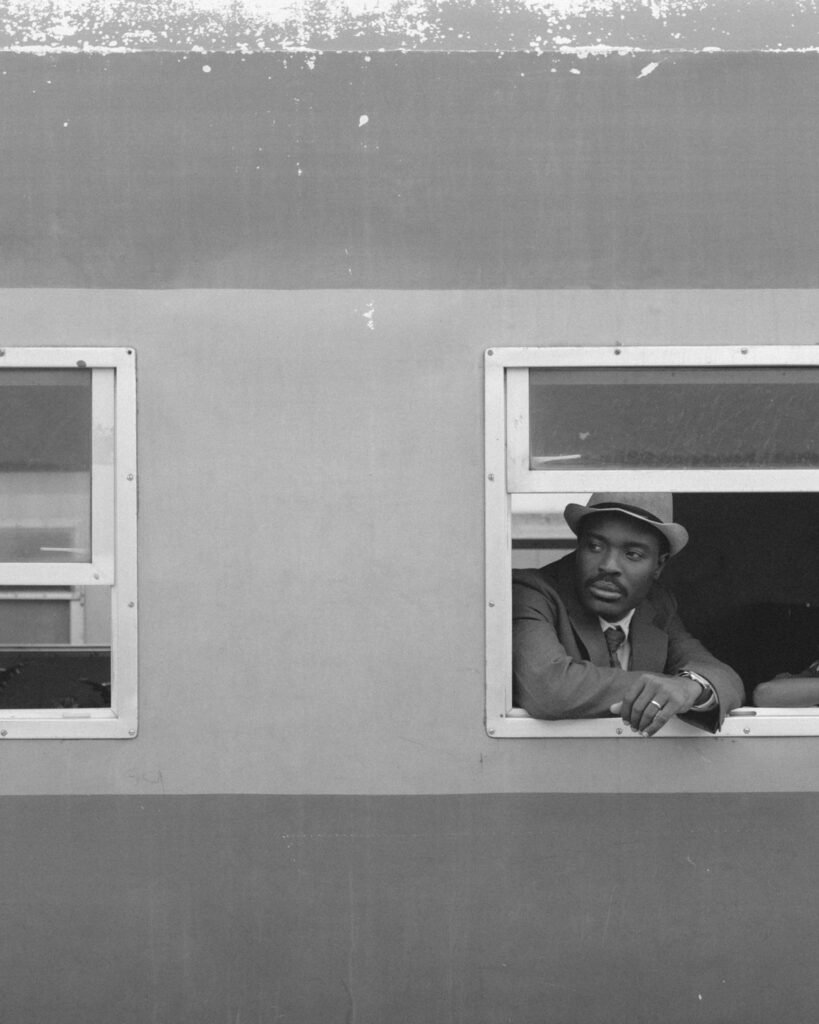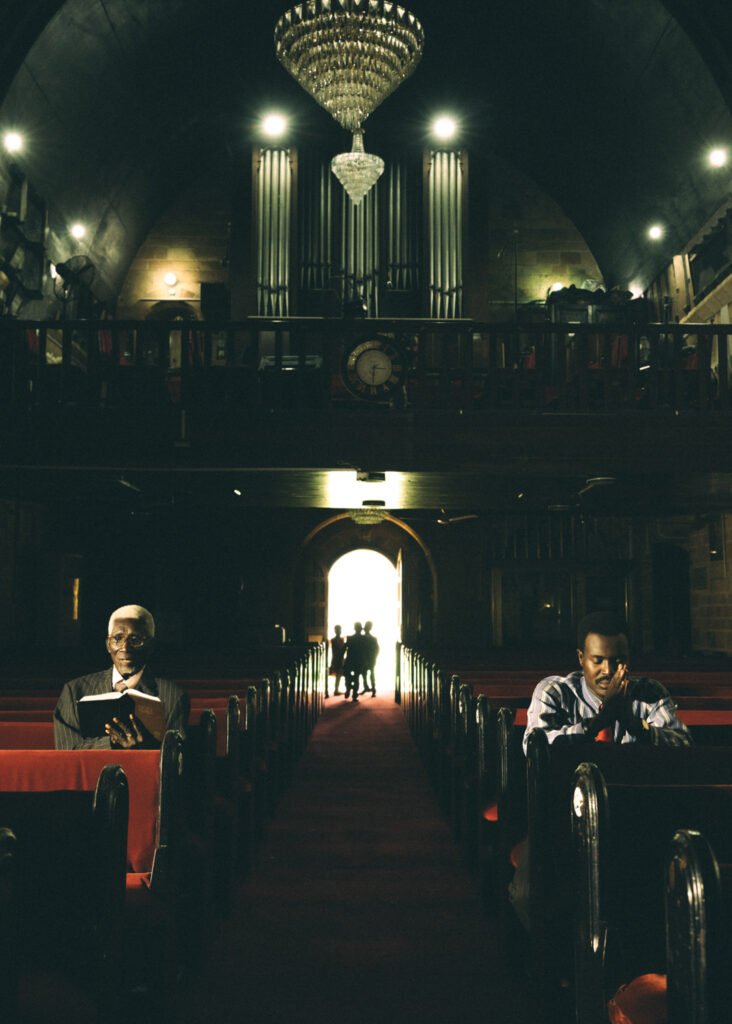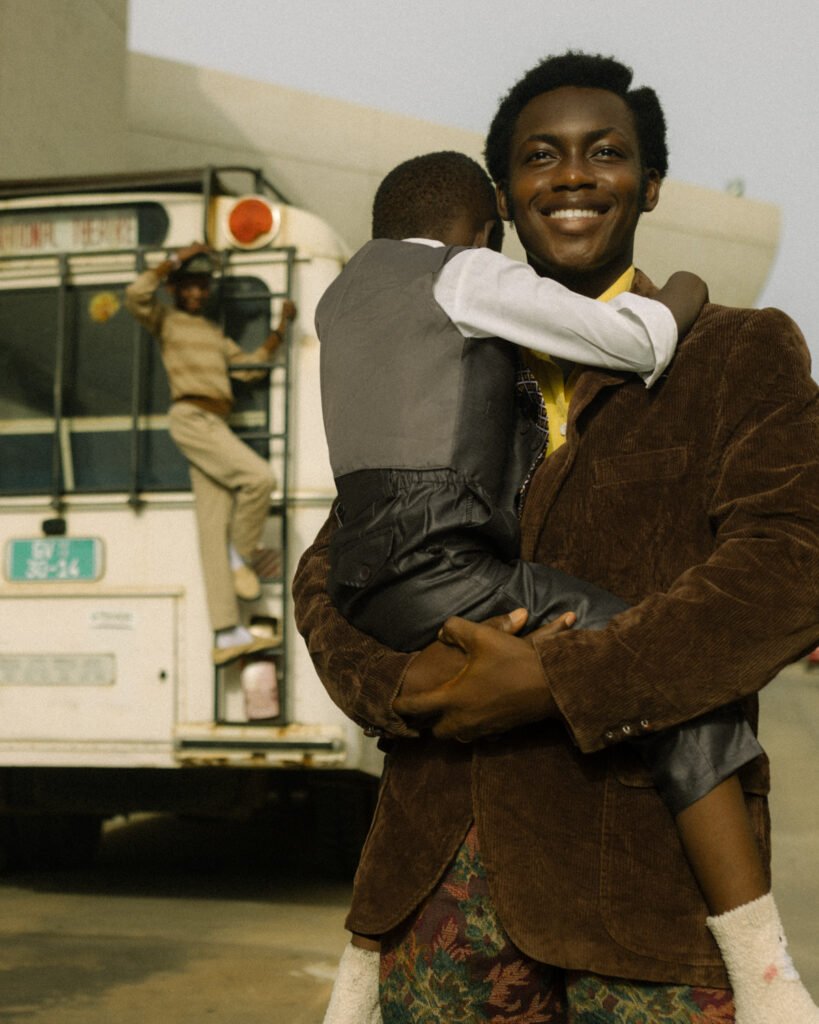After eighteen years with my father, we barely had any photographs together. Now that he’s no longer here, my memories of him feel faint—almost imagined. Photography wasn’t as accessible then as it is now. Family albums rarely captured the quiet intimacy of everyday life beyond the controlled environment of a photo studio. Hero, Father, Friend is both a biopic of my father and a photographic meditation on Black fatherhood and the archive. It’s an attempt to materialize the memories I never got to hold—to picture the moments my dad and I never got to live.
With this body of work, I also paint a hopeful portrait of what could have been—an imagined timeline of shared dreams. I invite the viewer to consider the quiet, often overlooked silhouettes of Black fatherhood and sonship: those undocumented yet deeply felt. This project celebrates fatherhood as a gift that extends beyond biology—offered through uncles, mentors, Pastors, and elders whose presence helped shape my understanding of love and care. Moments at the beach, piano lessons, football with cousins—these filled the absence of my father and taught me that presence can take many forms.
I believe Black fathers are central to the Black family portrait. Through this work, I consider how portraiture might shift our understanding of fatherhood—from a role marked by responsibility or absence to one rooted in love, legacy, and grace.
Hero, Father, Friend is personal. I take on both roles: photographer and imagined subject. These stories are mine—not just because I created them, but because I once lived them or wished them into being. This work is a gesture toward memory, imagination, and what it means to long for something you never had. It’s an offering—inviting us to treat the quiet, the mundane, and the deeply human with the same care as the monumental.
Carlos Idun-Tawiah (b. 1997) is a Ghanaian photographer and filmmaker based in Accra, Ghana. Drawing deeply from African archives—both personal and collective—his work reimagines the evolving landscapes of the continent, blurring the lines between fiction and non-fiction, past and present, memory and imagination.
His photographs centre on the quiet power of everyday life—relationships between generations, the rhythms of youth, the bonds of friendship and faith. With a careful, intuitive eye, Carlos makes images that are intimate yet expansive, rooted in emotion and attuned to the subtleties of the human experience.
Through each story, he seeks to honour the beauty and complexity of contemporary African life—not as an outsider looking in, but from within—with sincerity, grace, and an enduring belief in joy and hope as resistance.
Getxophoto is an image festival created and managed by Begihandi, that has been taking place in Getxo—Basque Country, Euskadi—since 2007. This festival is part of a cultural ecosystem with the aim of being more participatory, hybrid, committed and sustainable. This thematic Festival is conceived as a platform that addresses contemporary challenges through different proposals, from visual storytellers around the world, in an attempt to create spaces for reflection and establish a collective conversation. Getxophoto is characterized by the radical defense of public space (both physical and online). For this reason, most of its programme is composed of outdoor installations, highlighting, on the one hand, the link between the image and the environment and, on the other, generating a more horizontal and participatory relationship with the public.
This year, after PAUSE and PLAY, the festival will take the theme: REC. The abbreviation for Record, which usually appears as a red circle on our screens, refers to a register, to memory, to the story of the past, and to images as a witness to reality. The relationship between image and record is a central debate in visual studies, one that has been addressed by the great names of the theory of photography such as Walter Benjamin, Susan Sontag and Georges Didi-Huberman. But what is left of this debate today in relation to contemporary technologies? What is the difference between accumulating archives and telling a story? What is the future of the image—and of memory constructed through visual recording—in a world of extreme, immaterial, manipulable and seemingly infinite REC?
María Ptqk is the curator of GETXOPHOTO 2025.
